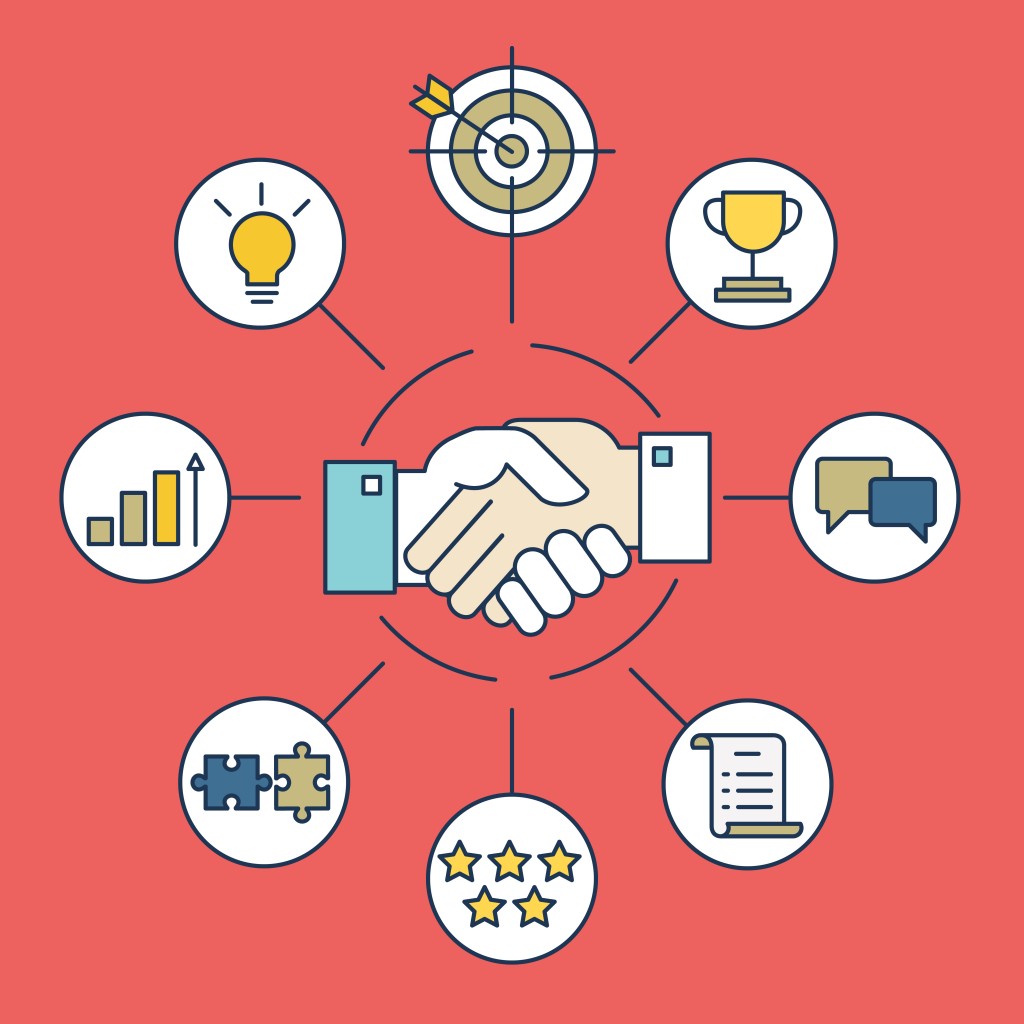Customer loyalty is a blessing for your business. It improves your customer retention, which in turn increases sales. The cost of a repeat customer is significantly lower than the cost of landing a new customer. Rosetta claims that engaged consumers buy 90% more frequently, spend 60% more per transaction, and are 5x more likely to be loyal to a brand.
When it comes to customer loyalty, there are three types:
Behavioral loyalty
Behavioral loyalty results in sales due to a lack of other options or an inordinate amount of effort needed to switch brands. Think of it as lazy loyalty; the customers buy from a brand largely due to convenience (close proximity, low prices, etc.). This means that factors such as location and price are crucial elements to consider when you’re trying to gain the bare minimum of loyalty from customers. However, this type of loyalty is a short-term solution; it won’t yield high or strong retention rates.
Rational loyalty
With rational loyalty, customers carefully calculate the value of the product or service before choosing a brand.
Consumers like to know the brands they’re buying from. Brand transparency and social responsibility are two influencing factors in consumers’ decision making; just look at the popularity and success of Tom’s shoes, Patagonia, and Warby Parker. This is especially true for millennials; 76% of whom prefer to do business with an organization that supports good causes.
Loyalty is a two-way street; brands need to be loyal to customers as well – especially long-term ones. This comes in the form of exclusive deals, world class customer service, and of course, loyalty programs. While loyalty programs aren’t necessarily rooted in emotions, businesses can tap into the emotional motivations that underlie consumers’ actions. Consumers aren’t collecting points to book a hotel, they’re collecting points so they can take a family vacation and make memories. Loyalty programs are catering to the very logical need for discount and value.
A disadvantage of decisions based largely on logic is that customers will only stay loyal as long as the brand continues to provide the best value, which means as soon as they find a better value, they’ll likely switch with minimum hesitation.
Emotional loyalty
All buyers are highly influenced by their emotions even if they don’t realize it. Emotional connections are what affect the quality of customers’ relationships with brands. How customers care about your products and services have a significant impact on your business because loyal customers will drive dedication and advocacy. Emotional loyalty occurs when the customer has a preference and attachment to the brand, regardless of factors like price and convenience or adequate alternatives available.
Research by Gallup states that consumers with strong emotional connections to retailers will visit stores 32% more often and spend 46% more money than those without emotional bonds. Forrester research reveals that 89% of consumers felt no personal connection to the brands they buy.
Without that emotional bond, customers are easily swayed; strong customer loyalty is rooted in an emotional foundation. Consumers may buy sporadically from certain brands, but will go back to brands that they have a genuine emotional connection to. One of the more prolific examples of leveraging emotions is sportswear giant Nike: “Nike doesn’t just sell athletic wear. They sell heroism.”
True brand loyalty is based on meaningful, memorable, emotional connections. The difficulty for brands comes in forging those close emotional ties with their customers. Brands will do well to base their brand identity in values that resonate with their consumers; 66% of millennials abandoned their brand of choice because the brand no longer aligns with their identity.
Emotional loyalty has been argued to be the most influential, but all three are important. Customer loyalty is the cohesive combination of the behavioral, rational, and emotional trifecta. Loyal customers are your brand’s best advocates; they’ll promote your products and services because they genuinely enjoy it. To gain a customer for life, you have to win over both hearts and minds.
